Teasing sunshine makes the thoughts think of spring. Time to put things in the ground, get it ready for the eggplant, the tomatoes, the peppers.
And this year, the boots from Bosnia.
This March 5 was uncanningly like the one in 1993, when I found myself once again under fire, but this time hit. It was when the vital lesson of “who are you really” is taught in a harsh, unforgiving instruction of life and death.
Sometimes, it passes with little resonance. Other times, it grabs me like a harsh flu, shakes my body and drains me.
A few years ago, like this March 5, that winter day was more like summer, making the drive to work unusually pleasant. Birds were singing instead of migrating. I was humming to a medley of unrecognizable hits that were skipping through my brain.
And then the shot rang out.
I gripped the wheel of my Jeep and cut sharply to the right. Instinctively I then did a quick move to the left, feinted more to the left then banked again to the right to go off the road.
Then I saw the Washington Monument across the river and realized I was not in Bosnia any more. But as my car quieted along with my breathing, I grimaced in that fact that part of Bosnia was still lurking in me.
There was no gunshot that morning, no mortar or grenade. It was just a loud, sharp staccato backfire of a truck a few cars away. But my reaction was one of panic—not so much that I thought that I was under fire but the fact that I had let my guard down and left myself vulnerable.
Then it had been almost six years since the true explosions rang out—but the memory makes always seems like yesterday.
First it feels like a searing blade of fire has been placed against the suddenly naked skin. A second later the pain erupts. The blood gushes.
The crash of a grenade shell is deafening, the shrapnel it sends unavoidable. But almost immediately after comes a silence that is a real deafness, a suspension of reality in a fog of dirt and flesh that breeds fear that the hearing will not return, that limbs are forever detached, that life itself is about to ooze out like the blood that is rapidly soaking the clothing.
Sixteen years ago, going in Sarajevo, that happened to me. I became a war statistic, one of dozens of reporters wounded covering the war in the former Yugoslavia. First sniper bullets streamed through the truck I was riding in. Then a rocket propelled grenade struck the vehicle, setting it on fire and sending shrapnel and glass into the driver and me.
Officially, I was just ”slightly injured” that day. I didn’t die, nothing real valuable seemed lost and that was how newspapers played the incident. In part I was thankful for that categorization. For those who might have worried about me, it helped put their minds at ease.
But being ”slightly wounded” is in most cases akin to being slightly pregnant. You have lived, you have survived. But your life is completely different. I thought the time would minimize the day’s events. I was a fool to think that.
The backfire of the truck was not the first time I have gone into war panic.
From hearing the crack of a bat breaking in a warm spring game at Wrigley Field to fireworks during Chinese new years in New York City, the reaction remains to hit the ground at any sound that seems like a sniper shot still lurks behind me. It’s amusing to onlookers, embarrassing to others.
It is now my habit to sit on the left side when I’m in a group of friends, since the hearing in my right ear is all but gone because of the blast. I still need to get into the habit of not grabbing a moist pint glass of draft beer with my right hand; because of the shrapnel damage to my right shoulder gripping things in the right hand is always an adventure.
And I still haven’t figured out a better way to shave so the blade does not slice the part of the chin where shrapnel was plucked out or how to check the uncontrollable tearing in my left eye that was scratched from glass flying from the shattered truck windshield.
In some perspectives the physical changes are easy for me to see and wrestle with. The mark on my soul is more perplexing and much deeper, like the bits of shrapnel that still remain in my knee.
When I was a small boy, my father once told me at the dinner table he had wished that I had been with him in the Second World War. Not so much because of the danger or even the perceived excitement. It was just because the experience made him a better, deeper person and, in the parlance of that time, a better man.
In that afternoon in Sarajevo, I could hear and see my life dangling. As the bullets flew outside the burning the truck, the big, burly Serb driver almost unconscious, it was up to me to save my life and his.
After checking to see all limbs attached, and found two still working fully at 100 percent, I wiped the blood off my face and out of my eyes. I shook him, speaking in basic Serbian since he spoke no English. He was too dazed to walk.
I took my helmet off my head and put it on his, kicked open what was left of the door on my side of the truck, dragged him out, slung his arm around my shoulders and carried him to the United Nations troop pillbox. It was all adrenaline.
My right arm and left leg were bleeding and on fire from the hot metal. Blood continued to race down my face. I could hear the bullets and waited for one or more to cut the driver and me down. I could faintly see and hear the French Foreign Legionaries waving and shouting their encouragement – in French, which I barely passed in high school.
At the Legion hospital, they carefully picked the glass off and away from my eyes. They plucked the metal from my chin. With a calm, quick slice, they opened my arm and meticulously cleaned that metal out, almost before their apology for not having any anesthesia sunk in.
Lying there that night on the cot, surges of pain rushing through me, hearing the vague chatter in French of the nearby Legionaries, it was apparent the singularity of one’s own life. Indeed, many others have been injured worse. Many more have been killed.
In a few weeks, the blood that had clotted to the shirt a buddy had given me washed out. When I returned to the United States two months later I was able to hit a tennis ball pretty well again. Life was resuming, but with a different light on.
I was hard. I was angry. And I was more alive than ever before.
For a few years. That continued, no matter where I was. But then that control left without telling me. That was what that sunny morning reminded me. I had become relaxed and let my guard down, two sure ways of dying in Bosnia.
So as I resumed my drive to work that morning I realized Bosnia was doing me one last favor. I had been tough and true those years and now I was soft. Where my words and deeds stood up to the bad guys in some small way, now I was complacent. The bad guys were still there, in the office and the city, but I was no longer fighting.
I was reminded who I really was and really could be. And I thanked Bosnia for reminding me not to forget what was important.
It still gnawed. It changed me for the better, but also left me vulnerable in others ways. I drifted without summation.
Then the snows came this year and I put on my Bosnia boots, waterproof, warm and comfortable. Later I felt my socks wet – when I took them off, I realized the boots had worn through and pieces were falling off, after all the years and the many wars.
My usual instinct would be to tuck them in the cedar chest, with all my other memories. But then March 5 came, and the sun was there again, teasing spring and summer. One must sow in order to reap. And so I buried the boots.
Now I eagerly await what will grow for me now.
— Tom Squitieri, March 5, 2009











